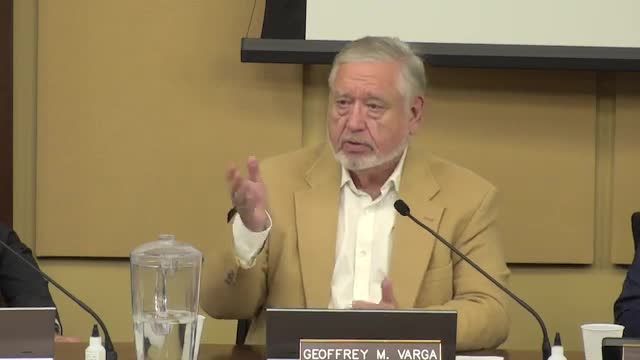City Considers Regulations for Controversial Short Term Rentals
October 18, 2024 | Mentor City Council, Mentor, Lake County, Ohio
This article was created by AI summarizing key points discussed. AI makes mistakes, so for full details and context, please refer to the video of the full meeting. Please report any errors so we can fix them. Report an error »

In a recent government meeting, officials discussed the growing concerns surrounding the use of residential properties for short-term rentals, a practice that has sparked debate among community members and local authorities. The conversation highlighted the challenges faced by code enforcement in monitoring these rentals, often initiated by complaints from neighbors who notice unusual activity, such as frequent visitors or out-of-state vehicles.
The discussion revealed that while short-term rentals have been a topic of concern for about a decade, there has been no significant history of nuisance issues reported. However, officials acknowledged the potential impact on property values and community expectations when residential homes are converted for transient use. The meeting underscored the tension between property owners who wish to utilize their homes for short-term rentals and those who fear the implications for their neighborhoods.
A key point raised was the distinction between residential and commercial use of properties. Officials noted that many short-term rentals operate without the necessary permits, which raises questions about health and safety standards. The conversation also touched on the need for regulations that could include limits on the number of guests, requirements for local management, and the establishment of emergency contact protocols.
Participants debated whether short-term rentals should be permitted under certain conditions, suggesting that a more structured approach could help mitigate community concerns. This could involve conditional use permits, geographic limitations, and specific operational requirements to ensure compliance with local zoning laws.
As the meeting concluded, there was a consensus on the need for further exploration of regulations governing short-term rentals. Officials expressed a willingness to consider the benefits of these accommodations while also addressing the legitimate concerns of residents. The discussion reflects a broader trend in many communities grappling with the implications of short-term rentals on residential neighborhoods.
The discussion revealed that while short-term rentals have been a topic of concern for about a decade, there has been no significant history of nuisance issues reported. However, officials acknowledged the potential impact on property values and community expectations when residential homes are converted for transient use. The meeting underscored the tension between property owners who wish to utilize their homes for short-term rentals and those who fear the implications for their neighborhoods.
A key point raised was the distinction between residential and commercial use of properties. Officials noted that many short-term rentals operate without the necessary permits, which raises questions about health and safety standards. The conversation also touched on the need for regulations that could include limits on the number of guests, requirements for local management, and the establishment of emergency contact protocols.
Participants debated whether short-term rentals should be permitted under certain conditions, suggesting that a more structured approach could help mitigate community concerns. This could involve conditional use permits, geographic limitations, and specific operational requirements to ensure compliance with local zoning laws.
As the meeting concluded, there was a consensus on the need for further exploration of regulations governing short-term rentals. Officials expressed a willingness to consider the benefits of these accommodations while also addressing the legitimate concerns of residents. The discussion reflects a broader trend in many communities grappling with the implications of short-term rentals on residential neighborhoods.
View full meeting
This article is based on a recent meeting—watch the full video and explore the complete transcript for deeper insights into the discussion.
View full meeting
